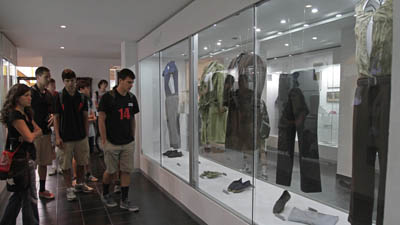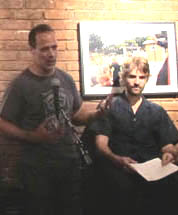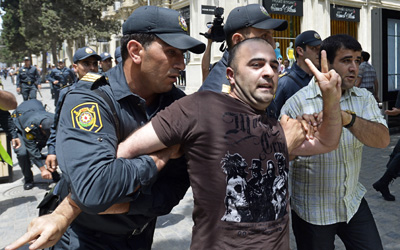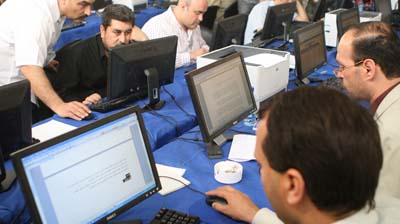Defining role of the press in genocide prevention
Talking about genocide prevention in the shadow of the Auschwitz-Birkenau extermination camps brings an intense and unique gravity to the discussions. The academic presentations cannot extract themselves from the looming presence of the barbed wires and grim towers surrounding the Nazis’ most infamous death factory.
Computer crime laws belie Thai claim to modern society
At online discussion sites all over the world, comments are posted on the Web as soon as they are written. People argue, inform, express anger, and voice fears. Some say things in the heat of the moment that they might go on to regret. Others are elliptical and obscure. The enabling of such conversations is…
Free expression in Americas goes beyond left or right
On Sunday the general assembly of the Organization of American States will convene in Bolivia in the verdant, highland valley city of Cochabamba. The 35 member states (every nation in the region except Cuba) are expected to vote on a measure that, if passed, could curtail free expression and press throughout the hemisphere and put…

Solidarity, a key to security, eludes Salvadoran press
No other journalists are remembered quite like this. Visitors looking through the glass display at the Monsignor Romero Center & Martyrs Museum in San Salvador see the pajamas and other clothes that three Jesuit university priests were wearing when they were shot down by automatic rifle fire. A series of clear containers are filled with…

At CPJ Debrief, Gettleman cites Somalia danger, reward
Jeffrey Gettleman, the Pulitzer Prize-winning New York Times correspondent, says he travels with “a small militia” whenever he reports from Somalia, the East African country afflicted by armed insurgency, poverty, and hunger. As intrusive as the security detail might be, he feels far more fortunate than the local reporters who face sustained and often deadly…

As Eurovision starts, partnership cites Baku repression
As the Eurovision song contest gets under way in Baku, Azerbaijani authorities continue to suppress freedom of expression, detaining 10 protesters on Monday, Reuters reported. The International Partnership Group for Azerbaijan, a coalition of free expression organizations that includes the Committee to Protect Journalists, has launched a website, Facebook and Twitter pages to highlight the…

Don’t get your sources in Syria killed
Because foreign journalists have been virtually banned from Syria during the uprising against Bashar al-Assad’s regime, news coverage has relied heavily on citizen journalists and international reporters working with sources inside the country. Syrians who communicate with foreign news media run the risk of being threatened, detained, tortured, or even killed.
CPJ calls for release of jailed reporters in Central Asia
World leaders must hold Central Asian regimes responsible for denying global access to information by throwing critical reporters behind bars, CPJ Eurasia researcher Muzaffar Suleymanov told the U.S. Commission on Security and Cooperation in Europe at a briefing Tuesday on political prisoners in Central Asia.

